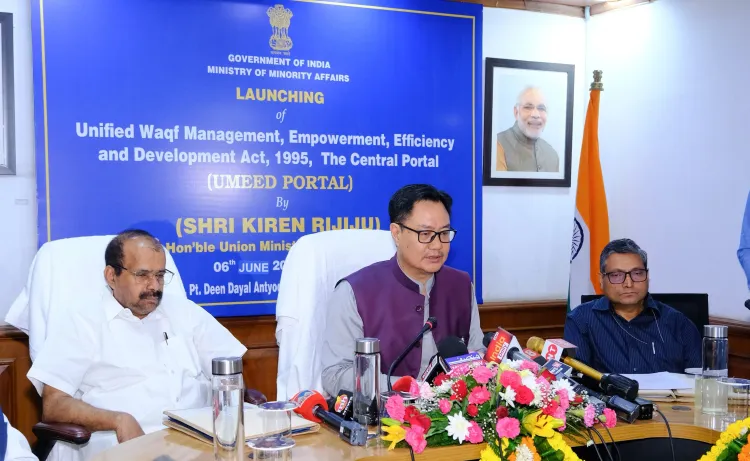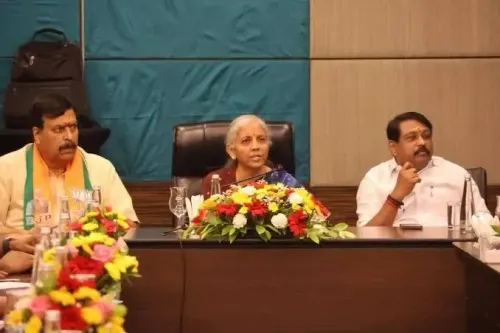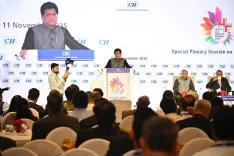Has the Centre Launched the UMEED Portal for Waqf Properties?

Synopsis
Key Takeaways
- UMEED portal aims to digitize Waqf property registration.
- Mandatory registration for all Waqf properties within six months.
- Three-tier verification system ensures accuracy and security.
- AIMPLB opposes the portal, citing legal concerns.
- Government's initiative is under judicial scrutiny.
New Delhi, June 6 (NationPress) The Union Ministry of Minority Affairs (MoMA) has officially unveiled the Unified Waqf Management, Empowerment, Efficiency and Development (UMEED) portal aimed at digitizing and enhancing the registration process for Waqf properties in accordance with the Waqf (Amendment) Act, 2025.
This initiative is designed to foster collaboration with State Waqf Boards and judicial entities to promote the portal, which assures a transparent and timely registration of Waqf properties.
The central portal acts as a transformative digital platform, serving as a central repository for Waqf property records nationwide.
Featuring a strong three-tier verification and security system, the portal employs the Maker-Checker-Approver protocol, as noted in an official release.
The Mutawalli (caretaker) will initiate the process as the Maker by entering property details. Subsequently, a Waqf Board official will step in as the Checker to review and validate these entries. Finally, a designated government authority will assume the role of Approver, ensuring complete verification before records are finalized.
The government mandates that all Waqf properties must be registered on the portal within six months of its launch.
Recently, the Ministry conducted a two-day national training workshop where approximately 141 Master Trainers from various states received practical training on the portal's features and functionalities.
However, the All India Muslim Personal Law Board (AIMPLB) has voiced its opposition to the Waqf UMEED Portal, labeling it as completely illegal and a violation of ongoing legal proceedings in the Supreme Court.
AIMPLB President Maulana Khalid Saifullah Rahmani stated, "The All India Muslim Personal Law Board firmly stands against the launch of the Waqf Umeed Portal. We urge Muslims and State Waqf Boards to avoid registering Waqf properties on the portal until the court issues its ruling."
Rahmani expressed that the portal is based on the provisions of the Waqf 2025 framework, which has faced widespread rejection and is currently under judicial examination.
He emphasized that, "All Muslim organizations have opposed this law. Opposition entities, human rights groups, and representatives from Sikh, Christian, and other minority communities have also deemed it unacceptable."
Labeling the government's action as contempt of court, Rahmani criticized the launch date of June 6, stating that it is unfortunate given the ongoing legal challenges to the law.
He added, "The government is enforcing mandatory registration of Waqf properties under the new law, the constitutional validity of which is in question. This step is not only unjust but also legally indefensible."
He further called on Waqf Board officials nationwide to submit formal objections to the registration process and to await the Supreme Court's decision.
The AIMPLB has also announced plans to approach the apex court regarding the Centre's recent actions.









